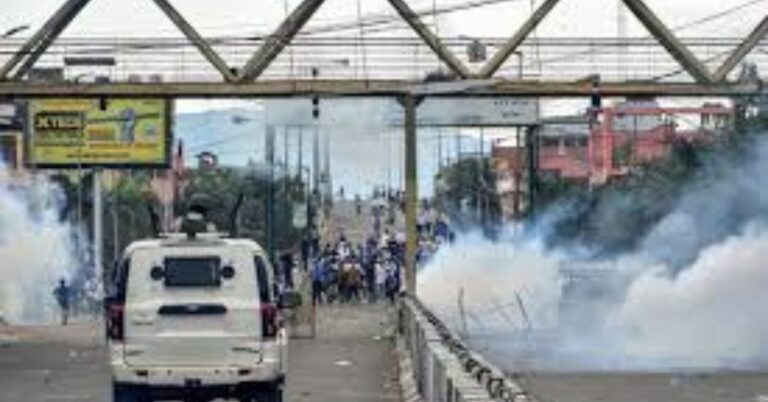September 11, 2024 — A fresh wave of violence has erupted in the northeastern Indian state of Manipur, where a bloody ethnic conflict has been simmering for 16 months. The renewed clashes between the majority Meitei community and the minority Kuki-Zo tribal groups have claimed at least 15 lives over the past week, bringing the total death toll since the conflict began to over 250.
The latest outbreak of violence began when unidentified gunmen attacked a convoy of vehicles carrying civilians and security personnel in Churachandpur district, a stronghold of the Kuki-Zo community. According to local police, the ambush left eight people dead, including two members of the paramilitary Assam Rifles. In retaliation, armed groups from the Meitei community reportedly raided villages near the state capital, Imphal, killing seven people and setting dozens of homes on fire.
The resurgence of violence has raised concerns over the effectiveness of the peace process initiated by the Indian government in recent months. Despite several rounds of negotiations and the deployment of thousands of additional security forces, tensions remain high between the Meitei and Kuki-Zo communities, who have been locked in a struggle over land rights, political representation, and cultural autonomy since the conflict began in May 2023.
The Indian Home Ministry has dispatched additional paramilitary troops to Manipur and imposed a curfew in several districts, including Churachandpur and Imphal. Internet services remain suspended in most parts of the state to curb the spread of misinformation and prevent further escalation.
Long-Standing Grievances Fuel the Conflict
The conflict in Manipur has its roots in decades-long ethnic tensions between the predominantly Hindu Meitei community, which resides mainly in the Imphal Valley, and the mostly Christian Kuki-Zo tribes, who inhabit the surrounding hills. The violence first erupted in May 2023 after the state government, led by the Bharatiya Janata Party (BJP), proposed granting Scheduled Tribe status to the Meitei community, a move seen by the Kuki-Zo as a threat to their land and resources.
Since then, both sides have accused each other of orchestrating violent attacks, with reports of abductions, arson, and forced displacements. Thousands of people have fled their homes, seeking refuge in relief camps or with relatives in other parts of the country. Human rights organizations have raised alarms over the deteriorating humanitarian situation, with shortages of food, medicine, and basic amenities reported across the conflict zones.
Calls for Peace Amidst Escalation


Amid the renewed violence, civil society groups and religious leaders from both communities have called for restraint and dialogue. “We appeal to all communities to end this cycle of violence and hatred,” said a joint statement issued by several prominent local organizations. “Peace cannot be achieved through bloodshed; we need to come together and find a solution that respects everyone’s rights and aspirations.”
However, efforts to broker peace face significant challenges. The ethnic fault lines in Manipur run deep, and political dynamics in the region have further complicated the situation. The BJP-led state government has been accused by opposition parties and activists of taking sides in the conflict, a charge it vehemently denies. The central government, meanwhile, has struggled to balance between maintaining law and order and addressing the legitimate grievances of both communities.
International Concern and Diplomatic Pressure
The escalation in Manipur has also drawn international concern, with the United Nations and several human rights groups urging the Indian government to take immediate steps to end the violence and ensure accountability for human rights violations. “The ongoing violence in Manipur is a matter of grave concern,” said a spokesperson for the UN High Commissioner for Human Rights. “We urge all parties to cease hostilities and engage in constructive dialogue to address the root causes of this conflict.”
As the conflict enters its 17th month, the situation remains tense and unpredictable. With no clear resolution in sight, the people of Manipur continue to endure the devastating impact of a conflict that shows no signs of abating.


